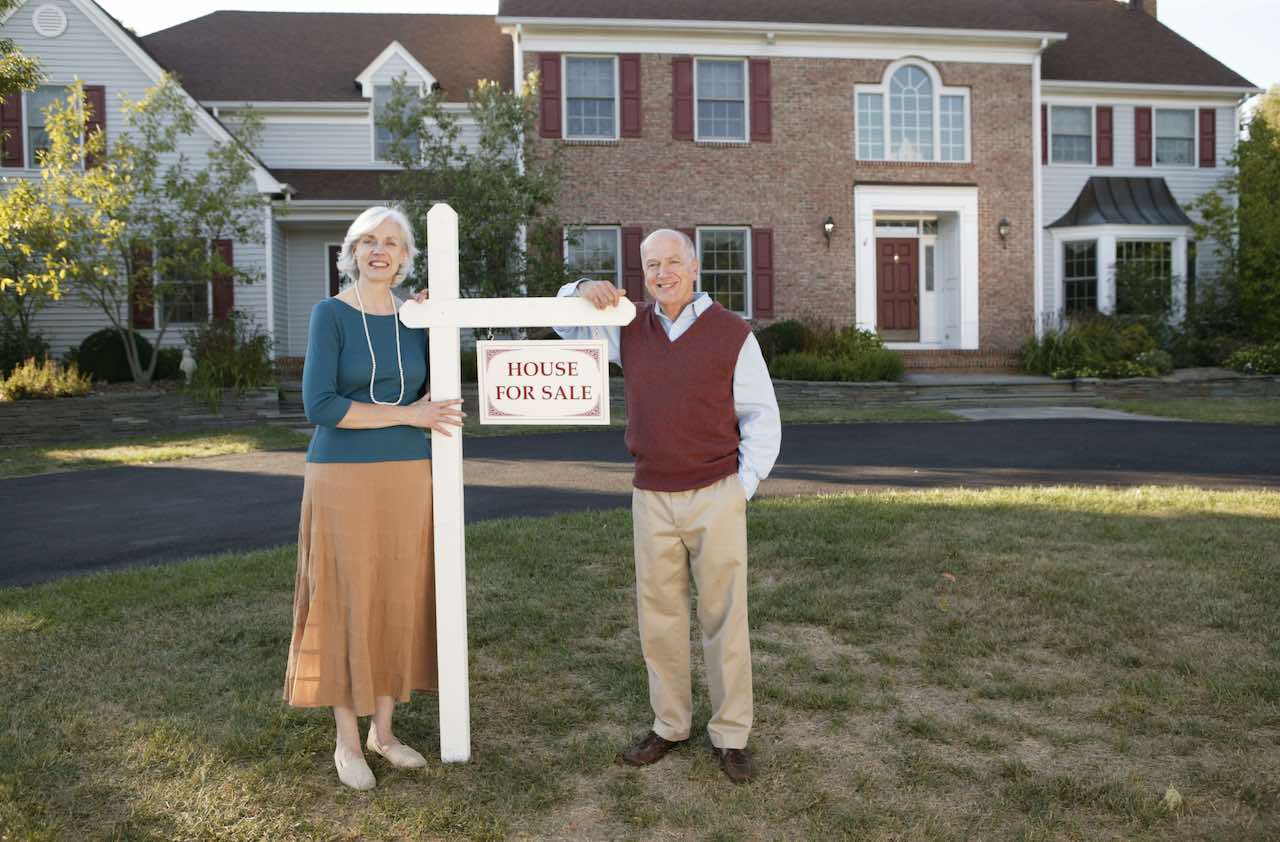Creative Housing for Seniors
In cohousing communities, residents own their units but share a common house to socialize and enjoy meals.

Profit and prosper with the best of Kiplinger's advice on investing, taxes, retirement, personal finance and much more. Delivered daily. Enter your email in the box and click Sign Me Up.
You are now subscribed
Your newsletter sign-up was successful
Want to add more newsletters?

Delivered daily
Kiplinger Today
Profit and prosper with the best of Kiplinger's advice on investing, taxes, retirement, personal finance and much more delivered daily. Smart money moves start here.

Sent five days a week
Kiplinger A Step Ahead
Get practical help to make better financial decisions in your everyday life, from spending to savings on top deals.

Delivered daily
Kiplinger Closing Bell
Get today's biggest financial and investing headlines delivered to your inbox every day the U.S. stock market is open.

Sent twice a week
Kiplinger Adviser Intel
Financial pros across the country share best practices and fresh tactics to preserve and grow your wealth.

Delivered weekly
Kiplinger Tax Tips
Trim your federal and state tax bills with practical tax-planning and tax-cutting strategies.

Sent twice a week
Kiplinger Retirement Tips
Your twice-a-week guide to planning and enjoying a financially secure and richly rewarding retirement

Sent bimonthly.
Kiplinger Adviser Angle
Insights for advisers, wealth managers and other financial professionals.

Sent twice a week
Kiplinger Investing Weekly
Your twice-a-week roundup of promising stocks, funds, companies and industries you should consider, ones you should avoid, and why.

Sent weekly for six weeks
Kiplinger Invest for Retirement
Your step-by-step six-part series on how to invest for retirement, from devising a successful strategy to exactly which investments to choose.
Lately, I've been considering downsizing, not only to save on mortgage payments and maintenance but also to get a jump on my next phase of life, when the kids-school-work routine of the past 30 or so years is replaced by the read-travel-relax routine of retirement. So far, the choices—boxy condos in antiseptic high-rises or houses that are short on space but long on yardwork—don't appeal. And I'm loath to give up the relationships I've formed in my current neighborhood.
Takoma Village, a cohousing community in Washington, D.C., not far from my neighborhood, might be the solution. One of 125 or so cohousing communities around the country, it was founded on principles developed in Denmark. Among its features: condos clustered around a central courtyard, a common house where residents can socialize and share meals, and a system whereby residents run and maintain the property themselves.
Not nonstop togetherness. Cohousing communities aren't communes. Residents own their own condos, for which they pay prices on par with local real estate values. Nor does cohousing require nonstop togetherness. "The site design is such that you can retire to the privacy of your own home," says Rebecca Lane, executive director of the Cohousing Association of the United States. “When you're ready to be in the community, you can step outside the front door, see neighbors and go to the common house," Lane says. Eating together isn't required, but it brings residents together. "Shared meals are the heartbeat of cohousing," she adds.
From just $107.88 $24.99 for Kiplinger Personal Finance
Become a smarter, better informed investor. Subscribe from just $107.88 $24.99, plus get up to 4 Special Issues

Sign up for Kiplinger’s Free Newsletters
Profit and prosper with the best of expert advice on investing, taxes, retirement, personal finance and more - straight to your e-mail.
Profit and prosper with the best of expert advice - straight to your e-mail.
At Takoma Village, a community of 43 households, "we know each other very well because we have to make decisions together," says Eleanor Whitman, 82. Residents participate in group chores eight times a year, which also encourages socializing, she says. "The retired guys are out fixing fences. People who are interested in food are making wonderful meals." And help, such as pet-sitting, checking on a sick neighbor or providing rides to the grocery store, is plentiful. "I was without a car for a few months," says Steve Pretl, 73. "I thought I'd use public transportation or a Zipcar, but I didn't have to. Everyone kept offering their car."
As with most cohousing communities, Takoma Village is open to residents of all ages, a plus for older people who don't want to live exclusively with other older people. The common house reflects the population: It includes a tot playroom, a teen room (read big-screen TV), a large kitchen for preparing group meals, a workshop, and several comfortable seating areas.
But not everyone is keen on sharing meals with 2-year-olds or sidewalk space with teenagers. Nevada City, Cal., architects (and spouses) Charles Durrett and Kathryn McCamant, who introduced cohousing to the U.S. in 1988, have developed six senior communities (current residents are ages 51 and up), and about six more are in the works from other developers. Similar in design to cohousing, senior communities typically set aside one unit for a caregiver.
The idea of having rug rats underfoot doesn't bother me, but one element of cohousing does: meetings. Self-governance involves a lot of them, says Peter Kent, 63, another resident of Takoma Village. "It takes time to come to an agreement on things. That's the flip side of being in a community." Some residents chafe at the decision-making process; others, busy with work and kids, mostly opt out.
I'm not a fan of meetings, and my introvert side regularly has to duke it out with my extrovert side. Still, as I contemplate a community where the whole point is to share lives and help each other out, I can't help but conclude that it would be a nice place to be old.
Jane Bennett Clark is a senior editor of Kiplinger's Personal Finance.
Profit and prosper with the best of Kiplinger's advice on investing, taxes, retirement, personal finance and much more. Delivered daily. Enter your email in the box and click Sign Me Up.

-
 5 Investing Rules You Can Steal From Millennials
5 Investing Rules You Can Steal From MillennialsMillennials are reshaping the investing landscape. See how the tech-savvy generation is approaching capital markets – and the strategies you can take from them.
-
 The Tool You Need to Avoid a Post-Divorce Administrative Nightmare
The Tool You Need to Avoid a Post-Divorce Administrative NightmareLearn why a divorce decree isn’t enough to protect your retirement assets. You need a QDRO to divide the accounts to avoid paying penalties or income tax.
-
 When Estate Plans Don't Include Tax Plans, All Bets Are Off
When Estate Plans Don't Include Tax Plans, All Bets Are OffEstate plans aren't as effective as they can be if tax plans are considered separately. Here's what you stand to gain when the two strategies are aligned.
-
 Retire in the Bahamas With These Three Tax Benefits
Retire in the Bahamas With These Three Tax BenefitsRetirement Taxes Retirement in the Bahamas may be worth considering for high-net-worth individuals who hate paying taxes on income and capital gains.
-
 Should You Move or Stay Put in Retirement?
Should You Move or Stay Put in Retirement?retirement Before buying in a new place, rent for at least one year, or one season, to see if you like it.
-
 The Surprising Costs of Downsizing Your Home
The Surprising Costs of Downsizing Your Homehome Fixing up a house to sell often means spending thousands of dollars in repairs and upgrades.
-
 The Benefits of Retirement Villages
The Benefits of Retirement Villagesretirement Neighborhood villages allow members to stay at home and have access to everything from pet walking and grocery runs to a list of vetted workers.
-
 Retirees, Should You Rent or Buy Your Home?
Retirees, Should You Rent or Buy Your Home?real estate If you decide you hate your new digs, you can move again without a hassle.
-
The Benefits of Aging in Place
retirement Local leaders are recognizing the benefits of providing services that allow people to stay in their homes and communities.
-
Remodel Your Current Home With Retirement in Mind
retirement Upgrade with universal-design features that will help you as you age. It's all about convenience now, and saving money and safety later.